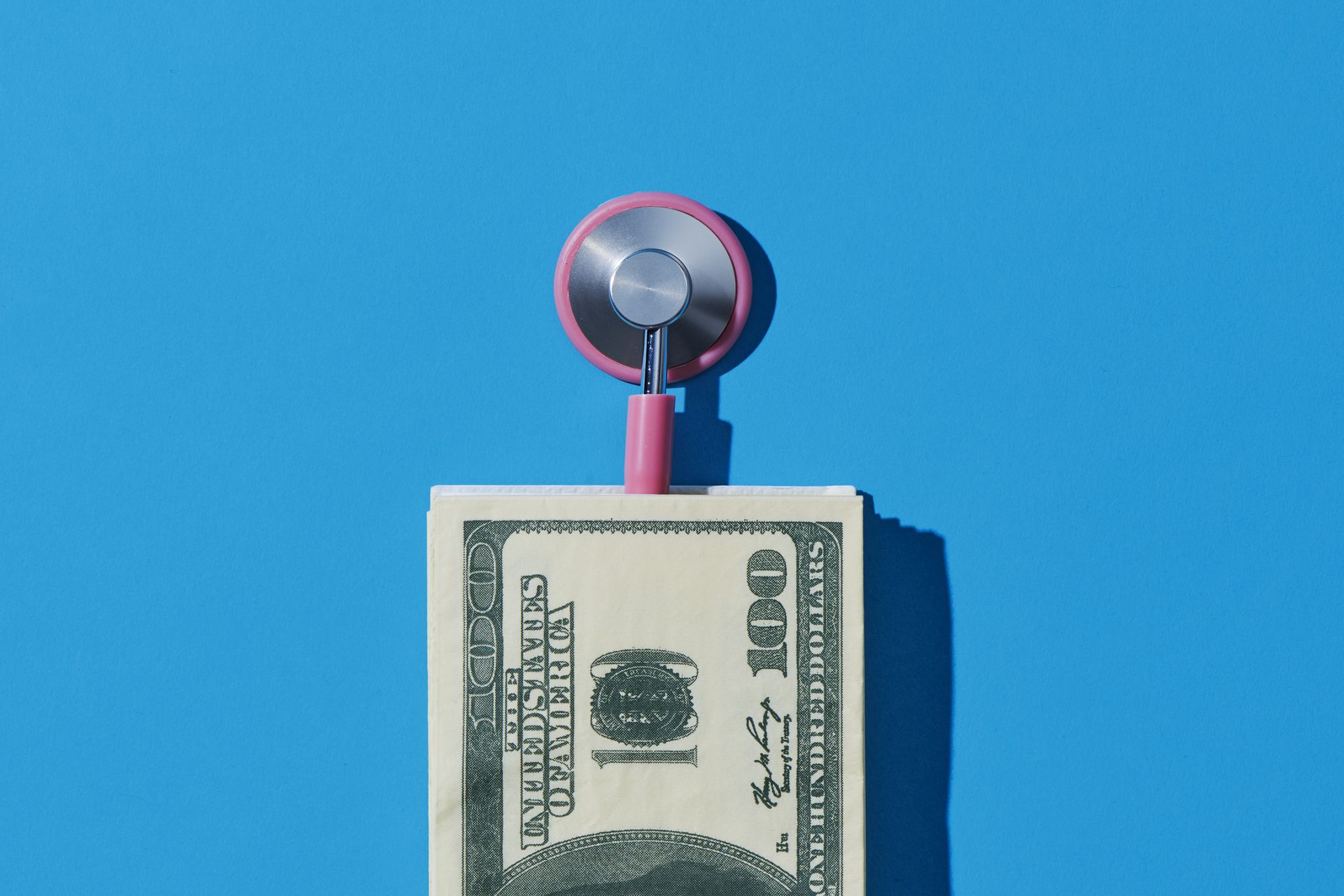Non-Eligible HSA Expenses: When a Doctor’s Note Isn’t Enough
Some companies are misleading consumers into purchasing non-eligible HSA products, which if claimed on your tax return, could eventually be challenged by the IRS.


Maxing out your health savings account (HSA) contributions can significantly lower your tax bill, but using those funds for non-eligible items could get you into trouble with the IRS. And the agency may challenge certain purchases, even when consumers have a doctor’s note to justify them.
The fact is that sometimes, a physician's note isn't enough to make certain products eligible The IRS is warning taxpayers that some marketing campaigns misrepresent what is HSA-eligible and what isn’t.
Here’s what you need to know to avoid tax penalties from the IRS when it comes to HSA-eligible items.

Sign up for Kiplinger’s Free E-Newsletters
Profit and prosper with the best of expert advice on investing, taxes, retirement, personal finance and more - straight to your e-mail.
Profit and prosper with the best of expert advice - straight to your e-mail.
Non-eligible HSA expenses
Food and wellness expenses are rarely considered HSA-eligible, despite the “food as medicine” movement that has swept the nation. Food items related to special diets, even when suggested by a doctor, can draw scrutiny from the IRS.
The same is true for other wellness items, such as fitness trackers and gym memberships. But that hasn’t stopped some companies from suggesting otherwise.
“Taxpayers should be careful to follow the rules amid some aggressive marketing that suggests personal expenditures on things like food for weight loss qualify for reimbursement when they don’t qualify as medical expenses,” said IRS commissioner, Danny Werfel in a release.
- Notes from doctors “based merely on self-reported health information” don’t qualify as legitimate documentation for making food and wellness products (or services) HSA-eligible.
- To make what would normally be considered a personal expense (weight loss programs, nutritional drinks, etc.) HSA-eligible, the expense must be “related to a targeted diagnosis-specific activity or treatment.”
Note: The same rules apply to a flexible spending account (FSA).
HSA-eligible expenses
To avoid scrutiny from the IRS, consumers should skip receiving a doctor’s note from companies selling wellness items online. Instead, patients can see their doctors, whether in person or via telehealth and request a letter of medical necessity (LMN) and prescription for wellness items related to the treatment of their health conditions.
- For example, doctors may recommend a gym membership to treat hypertension.
- Doctors may write an LMN for a fitness tracker for a patient who suffers from obesity.
- Supplemental nutrition drinks may be prescribed to patients with low appetites as a result of a chronic illness.
Of course, simply requesting an LMN from your doctor doesn’t guarantee you’ll receive one. But if you do have a legitimate doctor’s note, it is possible that the full cost of your purchase will not be considered HSA-eligible.
For food and beverages, only the portion of the expense that exceeds the cost of a product that “satisfies normal nutritional needs” is deductible. For example, if an enhanced drink costs $12, but a similar drink that merely satisfies normal nutrition needs costs $8, only $4 is deductible.
Using an HSA for fitness or weight loss
The IRS says taxpayers should not be afraid to use their HSA funds for qualifying expenses, but they should make sure they follow the rules and keep good records. Keep copies of LMNs, prescriptions, and all receipts for eligible items, whether you made purchases with your HSA debit card or received a reimbursement.
Does HSA spending trigger an audit? The IRS doesn’t monitor how you spend your HSA funds throughout the year, but that doesn’t mean they won’t ask for proof that your expenses were eligible. And if your tax return contains unrelated IRS audit red flags, your risk for an HSA audit could increase.
- If the IRS determines your expenses are not HSA-eligible, the ineligible expenses will be subject to income tax and a 20% penalty (if you are under age 65).
- Also, make sure you don’t exceed HSA contribution limits each year.
- If you made excess contributions, the IRS says you should withdraw the excess amount before the tax deadline (April 15, 2024) to avoid a 6% penalty.
HSA rules
What are the rules for an HSA when you turn 65? If you are 65 or older, you can take distributions for any reason without paying the 20% penalty. However, distributions for expenses that are not HSA-eligible are still subject to ordinary income tax. However, if you enroll in Medicare, you will no longer be eligible to make HSA contributions.
Related Content

To continue reading this article
please register for free
This is different from signing in to your print subscription
Why am I seeing this? Find out more here
Get Kiplinger Today newsletter — free
Profit and prosper with the best of Kiplinger's advice on investing, taxes, retirement, personal finance and much more. Delivered daily. Enter your email in the box and click Sign Me Up.

Katelyn has more than 6 years of experience working in tax and finance. While she specialized in tax content while working at Kiplinger from 2023 to 2024, Katelyn has also written for digital publications on topics including insurance, retirement, and financial planning and had financial advice commissioned by national print publications. She believes knowledge is the key to success and enjoys providing content that educates and informs.
-
 Amazon Prime Day vs Walmart Deal Days: Which Is Better?
Amazon Prime Day vs Walmart Deal Days: Which Is Better?From household goods and clothing to electronics and toys, which retail giant is the clear winner? The answer may be both.
By Kathryn Pomroy Published
-
 Perpetual-Life Non-Traded REITs: Four Things Investors Should Know
Perpetual-Life Non-Traded REITs: Four Things Investors Should KnowCompanies with good track records oversee the largest perpetual-life non-traded REITs, but there are some structural concerns about the funds to be aware of.
By Matt Sharp Published